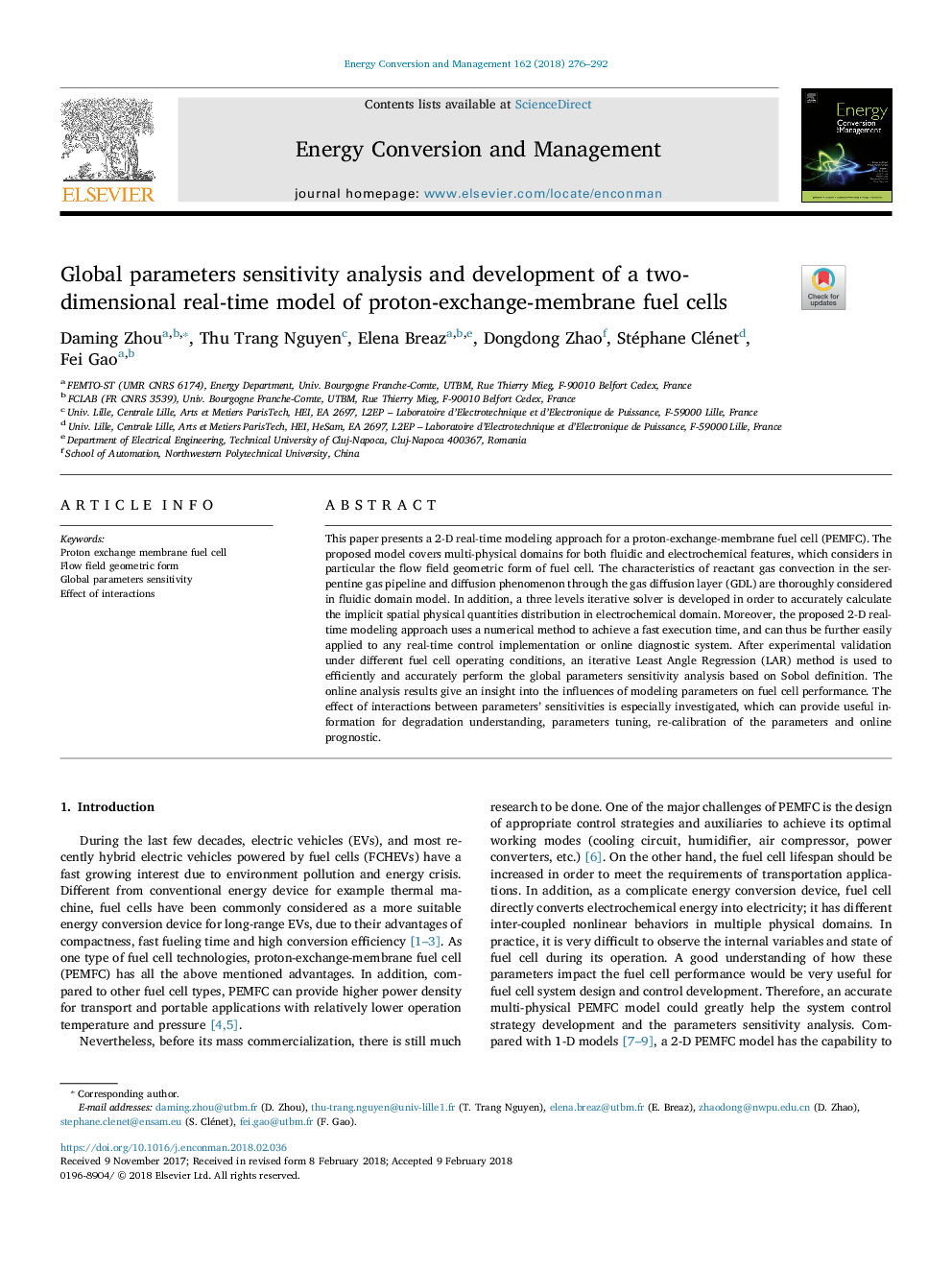ترجمه فارسی عنوان مقاله
تجزیه و تحلیل حساسیت پارامترهای جهانی و توسعه یک مدل زمان واقعی دو بعدی سلول های سوختی پروتون-مبدل-غشاء
عنوان انگلیسی
Global parameters sensitivity analysis and development of a two-dimensional real-time model of proton-exchange-membrane fuel cells
| کد مقاله | سال انتشار | تعداد صفحات مقاله انگلیسی |
|---|---|---|
| 138893 | 2018 | 17 صفحه PDF |
منبع

Publisher : Elsevier - Science Direct (الزویر - ساینس دایرکت)
Journal : Energy Conversion and Management, Volume 162, 15 April 2018, Pages 276-292
ترجمه کلمات کلیدی
سلول سوختی غشای تبادل پروتون، فرم هندسی جریان میدان، حساسیت پارامترهای جهانی، اثر تعاملات،
کلمات کلیدی انگلیسی
Proton exchange membrane fuel cell; Flow field geometric form; Global parameters sensitivity; Effect of interactions;

